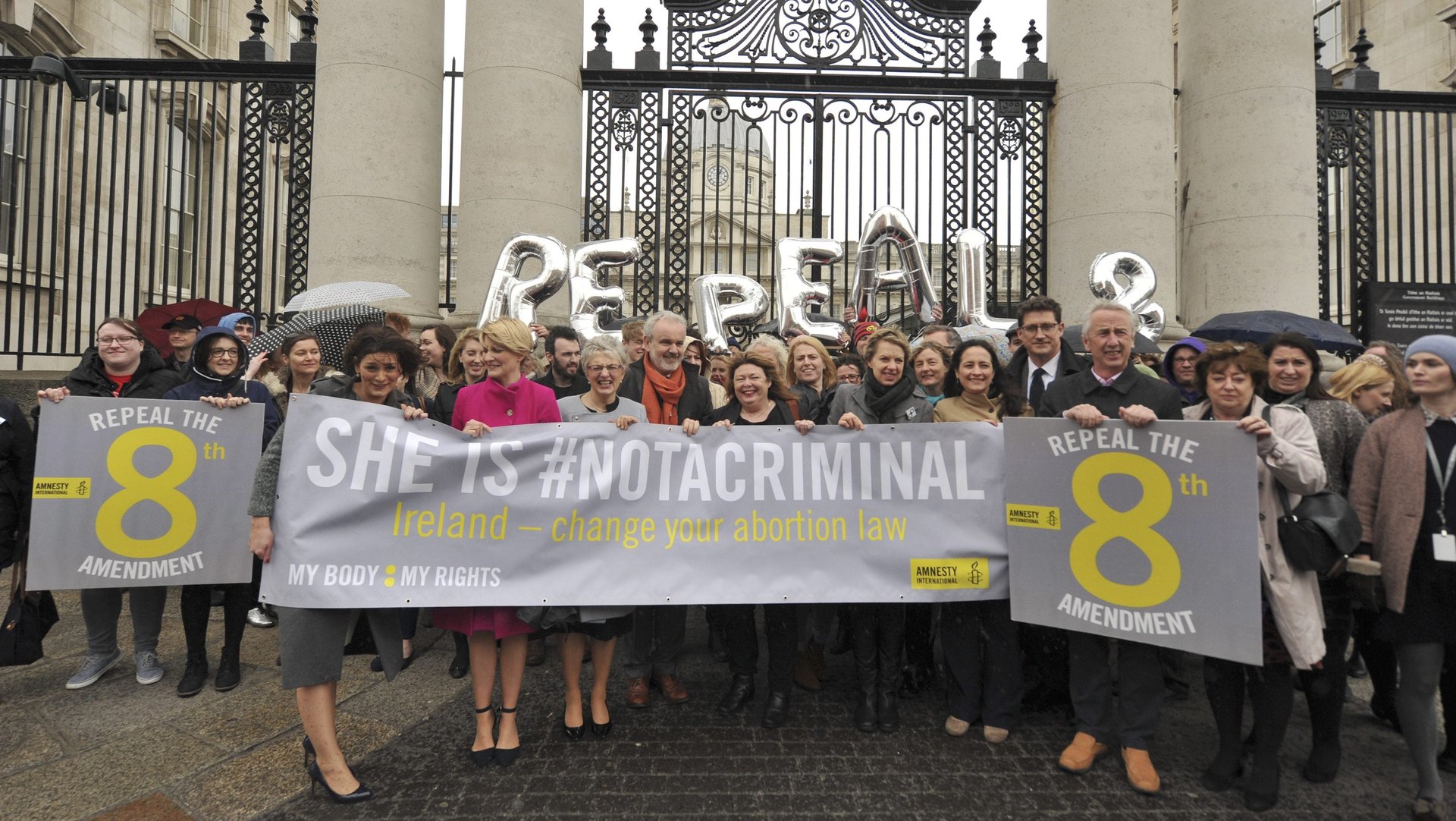The UN decided Ireland’s abortion law is a violation of human rights
Mostly due to its strong Roman Catholic tradition, Ireland was, up until 2013, the only large Western country to completely outlaw abortion. Now it allows for the sole exception of procedures necessary to save a woman’s life. This means that even if the pregnancy is the result of a rape or incest, or the baby has serious congenital problems, a woman does not have a choice to have an abortion.


Mostly due to its strong Roman Catholic tradition, Ireland was, up until 2013, the only large Western country to completely outlaw abortion. Now it allows for the sole exception of procedures necessary to save a woman’s life. This means that even if the pregnancy is the result of a rape or incest, or the baby has serious congenital problems, a woman does not have a choice to have an abortion.
This is not just a backward position—it’s a violation of human rights, a UN panel decided in a June 9 ruling. The case was brought by a woman who, in 2011, left Ireland to have an abortion after being told her baby would die in the womb or shortly after giving birth.
She went to Britain to end the pregnancy “while carrying a dying fetus, at personal expense and separated from the support of her family,” according to the findings of the UN Human Rights Committee panel. The woman could not afford to remain in the UK long enough to recover, and had to leave without the remains of the fetus, which were sent to her by mail (in ashes) three weeks later.
The Human Rights Committee ruled that this case represents a violation, that the woman “was subject to cruel, inhuman or degrading treatment as a result of Ireland’s legal prohibition of abortion,” and that she should be offered compensation. Further, the committee recommended Ireland “amend its law on voluntary termination of pregnancy,” and that it amend the Constitution if needed, to allow “effective, timely and accessible procedures for pregnancy termination.”
This gives an extra push to the movement to legalize abortion in Ireland, where, unless there is real danger to the life of the mother, an abortion can be punished with up to 14 years in prison.
Katrine Thomasen, who works with the Center for Reproductive Rights in Europe, told Quartz in May at the Women Deliver conference in Copenhagen that public opinion in Ireland has fundamentally shifted. “Polls show an overwhelming support for changing the law,” she said. Indeed, a poll in January 2016 found that 78% of Irish people support some access to abortion.
Currently in Europe, abortion is illegal except in cases to save the mother’s health in Ireland, Malta, Lichtenstein, and Andorra. And it is severely restricted in Poland, Monaco, and Northern Ireland, the latter of which also was found, in a landmark High Court ruling in Belfast last year, to infringe on human rights as a result of its abortion laws.